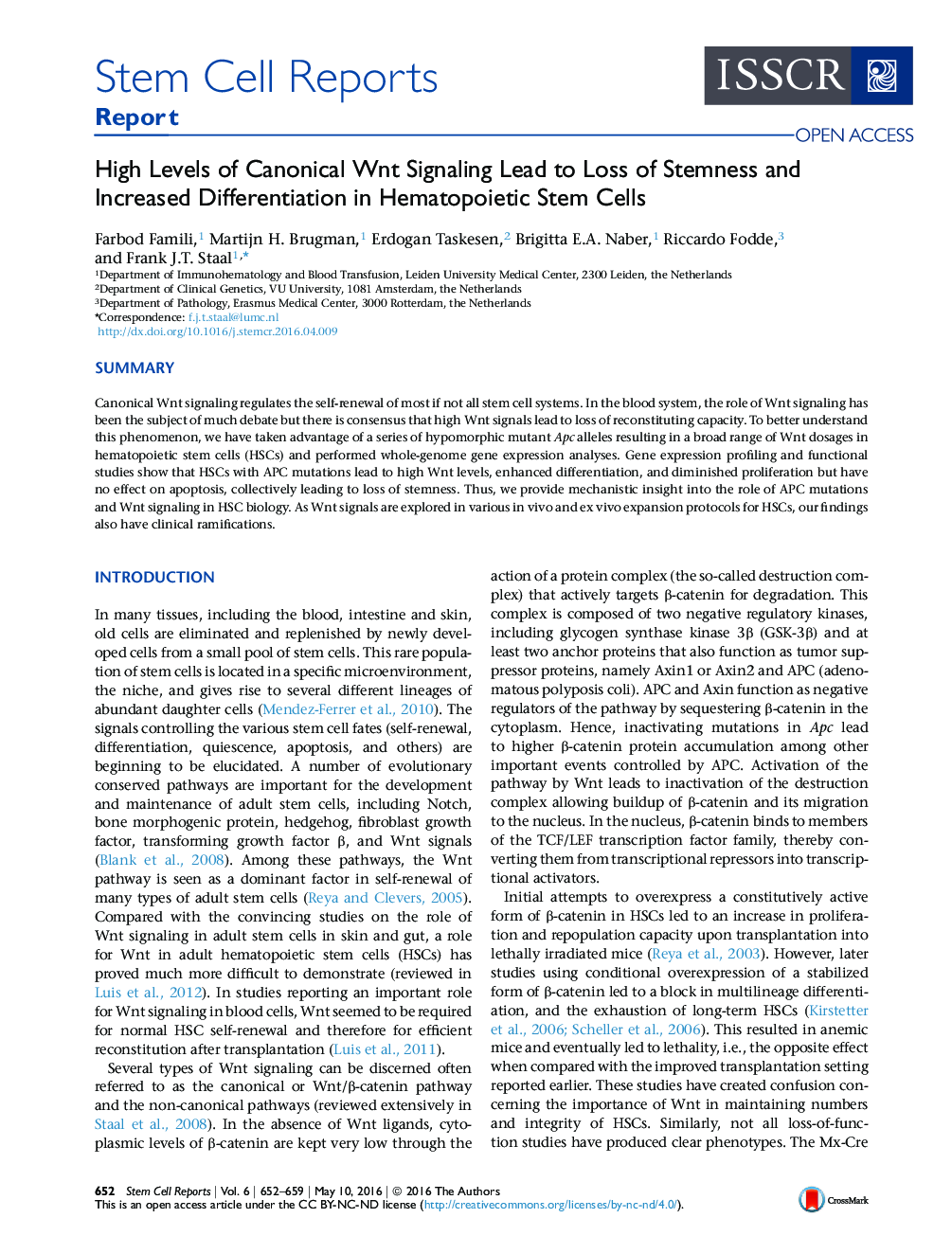| Article ID | Journal | Published Year | Pages | File Type |
|---|---|---|---|---|
| 2093224 | Stem Cell Reports | 2016 | 8 Pages |
•Gene expression profiling of mouse HSCs with various Wnt dosages was performed•GSEA reveals loss of stemness genes, enhanced differentiation, no changes in apoptosis•Functional experiments confirm the lack of apoptosis and enhanced differentiation•Lack of reconstitution is mainly caused by loss of bona fide stem cell activity
SummaryCanonical Wnt signaling regulates the self-renewal of most if not all stem cell systems. In the blood system, the role of Wnt signaling has been the subject of much debate but there is consensus that high Wnt signals lead to loss of reconstituting capacity. To better understand this phenomenon, we have taken advantage of a series of hypomorphic mutant Apc alleles resulting in a broad range of Wnt dosages in hematopoietic stem cells (HSCs) and performed whole-genome gene expression analyses. Gene expression profiling and functional studies show that HSCs with APC mutations lead to high Wnt levels, enhanced differentiation, and diminished proliferation but have no effect on apoptosis, collectively leading to loss of stemness. Thus, we provide mechanistic insight into the role of APC mutations and Wnt signaling in HSC biology. As Wnt signals are explored in various in vivo and ex vivo expansion protocols for HSCs, our findings also have clinical ramifications.
